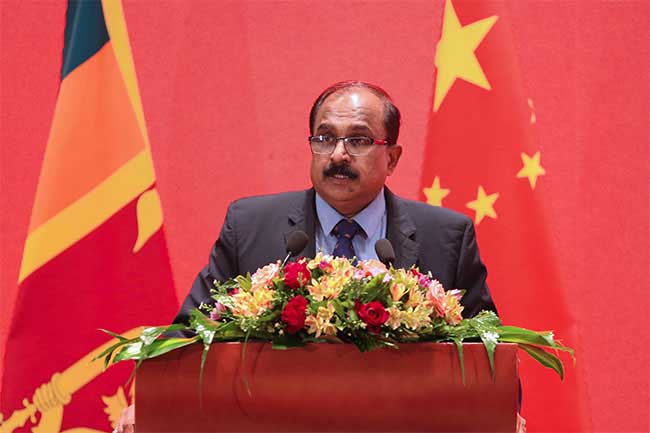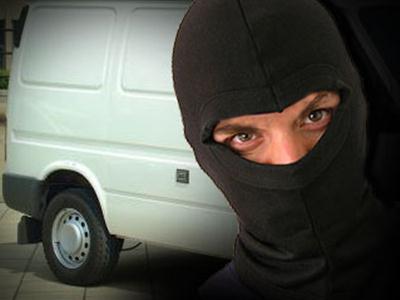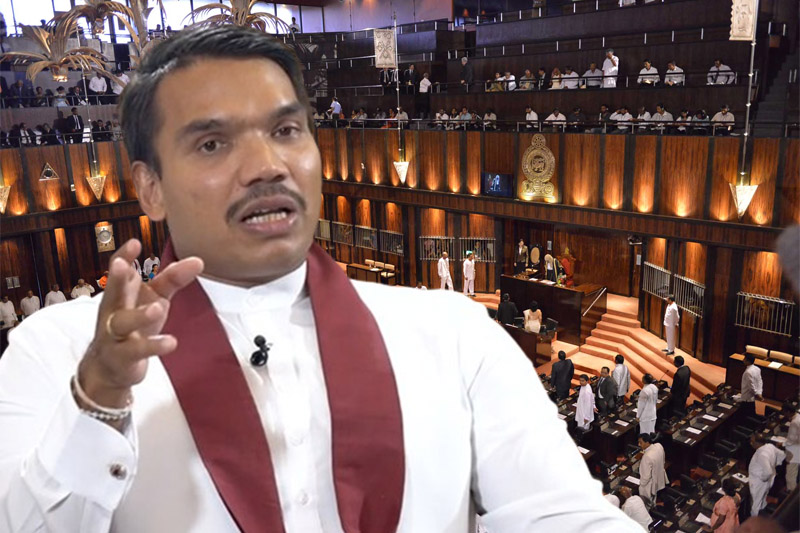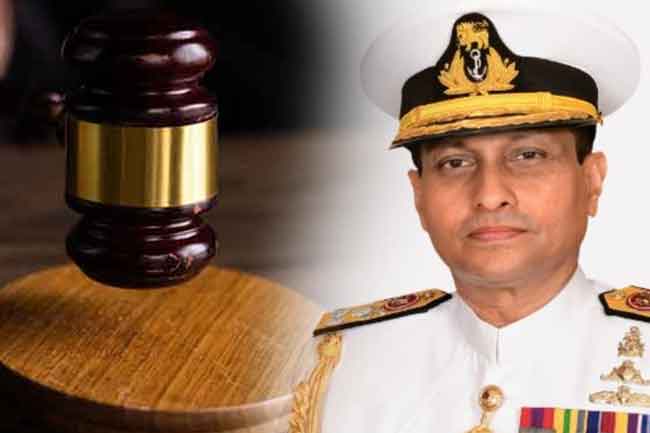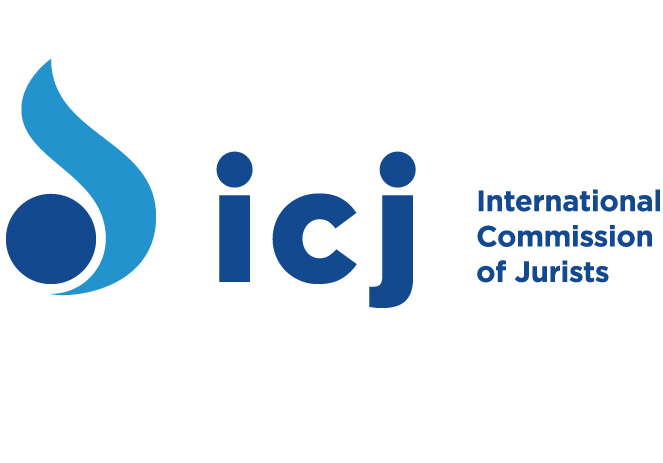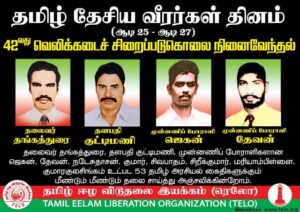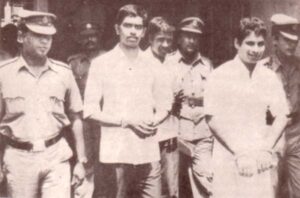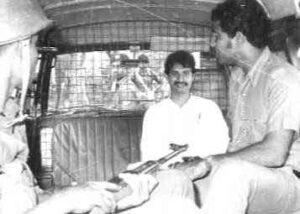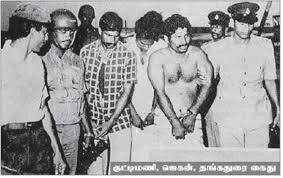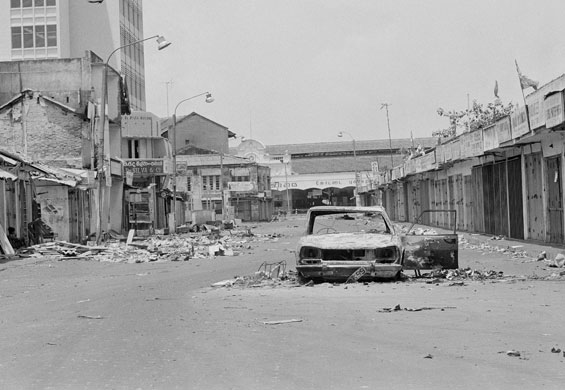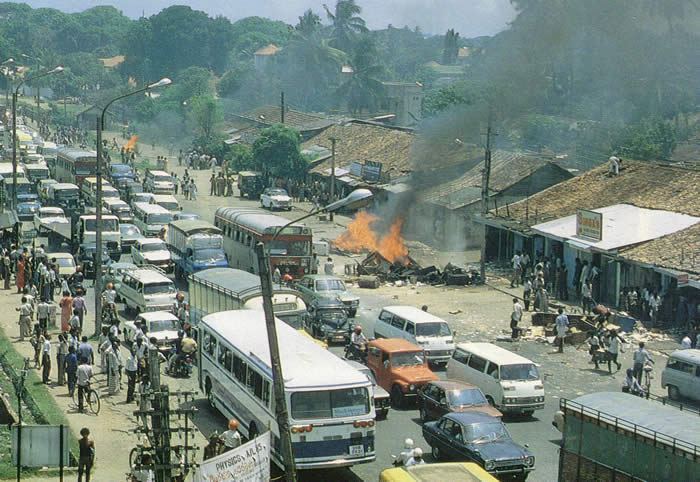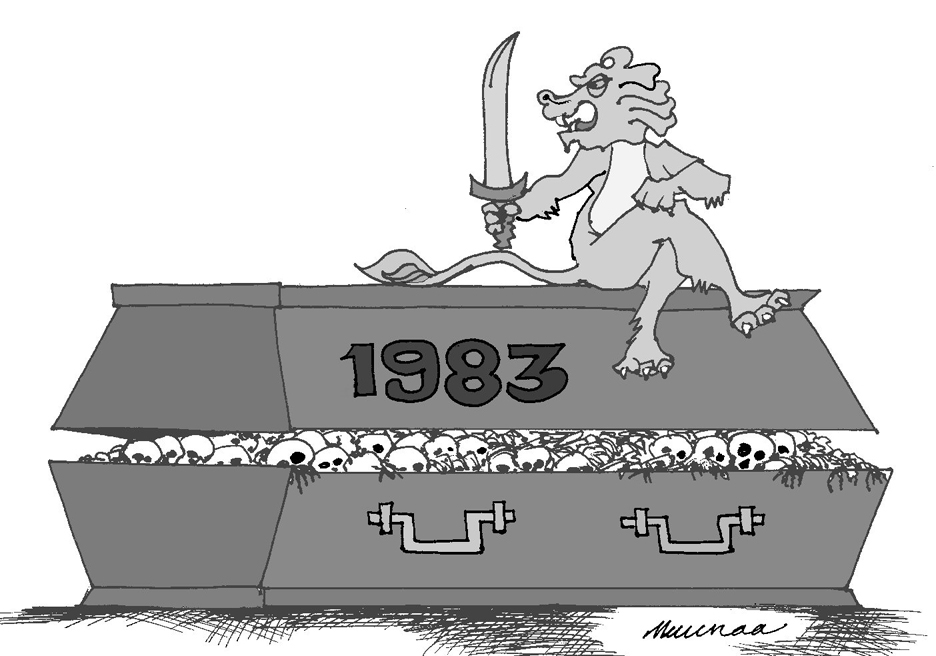“All changed, changed utterly” is a powerful line from ‘Easter, 1916’, the famous poem of William Butler Yeats. The poem by W.B. Yeats was about the Irish Easter uprising in 1916, its cruel suppression and how all changed utterly in Ireland. In Sri Lanka “all changed” and “changed utterly” for the Tamil people 40 years ago.The catastrophic events of July 1983 drastically altered the lives of large numbers of Tamils in Sri Lanka.
As is well-known , widespread anti-Tamil violence erupted forty -two years ago during the fourth week of July in 1983.Although the tragic history of post-independence Sri Lanka records that the Tamils of Sri Lanka were subjected to mass –scale mob violence in the years 1956, 1958, 1977, 1981 and 1983, the anti-Tamil violence of July 1983 was the most horrible of them all.
Around 3500-4000 Tamils and some Muslims -mistaken for Tamils- were killed. Thousands were injured. Some of the injured were killed in hospitals. There were over 200,000 displaced persons as a result. 130,000 were housed in makeshift refugee camps. More than 2500 business enterprises ranging from huge factories to petty boutiques were damaged or destroyed. The number of houses and dwellings damaged or destroyed has not been fully estimated yet.
The mass scale deaths, destruction, displacement, deprivation and despair suffered by the Tamils both Sri Lankan and Indian made them characterise those days in July as a dark period in their lives.The extent to which the Tamils were diminished in that month made them call it “Black July”.
The tragic happenings remain vividly etched in memory even after 40 years as the “Black July” of 1983. I have written about the dark events of July 1983 extensively in the past. However, I intend re-visiting the events of that cruel month with the aid of such writings in these columns to denote the 42nd anniversary of the”Black July” terrible pogrom.
Colour
When writing about “Black July” one is conscious of the negative connotations in using the colour “black” to describe something bad and evil and the colour white for pure and good. In this age of “Political Correctness” these usages have been challenged and debunked as insidious vestiges of racism. Wittingly and unwittingly these usages keep promoting racist stereotypes of colour. Nevertheless it is difficult to adopt such a politically correct stance in the Sri Lankan context as the description “Black July” has pervaded national consciousness. Avoiding such reference would be particularly impossible in writing about the tragic incidents of July 1983.
Pogrom
Another point is about terminology.What happened in July 1983 was not spontaneous violence or ethnic riots but a planned pogrom. A “Pogrom” is defined as a form of violent riot , a mob attack, either approved or condoned by government or military authorities, directed against a particular group, whether ethnic, religious, or other, and characterized by killings and destruction of their homes, businesses, property and religious centers.
The word pogrom is of Russian origin and means “to destroy, to wreak havoc, to demolish violently” in the language. Pogrom became commonly used in English after a large-scale wave of anti-Jewish violence swept through south-western Imperial Russia encompassing present-day Ukraine and Poland from 1881-1884. Later more bloodier waves of pogroms broke out from 1903–1906, leaving thousands of Jews dead and wounded.
What happened in July 1983 was that there was a pre-planned conspiracy to launch a systematic, widespread attack against Tamil life, limb and property on a massive scale. All it required was a powerful incident to be the provocative pretext to justify such an attack. The ambush in Jaffna of an army patrol by the Liberation Tigers of Tamil Eelam(LTTE) on 23 July resulted in 13 soldiers being killed. This incident provided the excuse of being the flashpoint of tension that triggered off the anti-Tamil violence that followed.
Sinhala People Blamed by JR
The Sinhala people were collectively blamed for the violence by the then President Junius Richard Jayewardene (JR) and his United National Party (UNP) Government. This was done to deflect blame falling on the Govt.
There is, however, a major flaw in attributing the dark events of Black July ‘ to the Sinhala people on the whole. It is correct that the perpetrators were Sinhala and the victims Tamils. But it was by no means a mass uprising of the entire Sinhala race against Tamils. If that had happened few Tamils would have been left to tell the tale
The majority of Sinhala people was horrified at what happened and forced to be helpless onlookers, while a minority of their ethnicity unleashed havoc in the name of their race and country.The mobs on a burning spree went in search of fuel chanting the slogan “Rata Jathiya Bera Ganna, Petrol Thel Tikkak Dhenna” (To save the race and country give a little petrol and oil)
It is possible that a section of the people who were non –participants may have been supportive of the anti–Tamil violence and sanctioned it by their silence.But most of the Sinhala people were against what happened then. It cannot be forgotten that a large number of Sinhalese protected and saved Tamils often at great personal risk. Many Muslim people too gave shelter and protection to their Tamil neighbours in those dark days.
In this regard it would be useful to look at what happened in 1990 between Tamils and Muslims also. The LTTE evicted the Muslim people en masse from the North in October 1990. The tigers also gunned down large numbers of innocent Muslim civilians during prayer at a Mosque in Kattankudi. There was a massacre in Eravur also. Most Tamils were shocked and mortified by the LTTE’s horrible conduct. But there was little they could do about it because they were powerless against the powerful LTTE. This was the case in July 1983 too. The Sinhala people were powerless in the face of officially sanctioned unofficial mobs.
JR’s Deplorable Conduct
President JR ayewardene’s conduct in July 1983 was most deplorable. Some days before the violence, in an interview to the British newspaper “Daily Telegraph”JR reportedly stated “I am not worried about the opinion of Jaffna people now… Now we can’t think of them. Not about their lives or of their opinions about us. …The more you put pressure in the North, the happier the Sinhalese people will be here.”
Even as the anti-Tamil vilence was continuing, JR addressed the nation via TV on July 28. In that he indirectly blamed the Sinhala people and said the violence was a natural reaction. Instead of reaching out to the victimised Tamil people the then President announced that legislation would be brought to forbid secessionism.This is what JR reportedly stated then –
“Because of this violence by terrorists, the Sinhala people themselves have reacted … the time has now come to accede to the clamour and national request of the Sinhalese people……. other than through bringing legislation to deprive those in positions of influence who campaign for separation of their civic rights, we cannot see any other way by which we can appease the natural desire and request of the Sinhalese people to prevent the country being divided.
Thondaman Refutes JR
A few days later Ceylon Workers Congress (CWC)President and Rural Industrial Development Minister Saumiamoorthy Thondaman also addressed the nation via TV . In that he refuted JR’s allegation against the Sinhala people. This is what Thondaman reportedly said on August 2nd –
“At a time when the community of people of Indian origin has been torn asunder of its roots where it had existed for over 100 years, we are constrained to look at the claim which some make that the recent pogroms are a Sinhalese uprising against us … In our thinking it is the work of well organised groups who had gone on the rampage, rioting, looting and setting on fire … ..It is more than unfortunate that these elements of disaster, these squads of goondas and rabble have been allowed to parade the streets freely causing havoc and inflicting misery of such proportions with impunity”
International Commission of Jurists
In spite of the attempts to rationalise the July 1983 anti-Tamil violence as a “Sinhala backlash to 13 Soldiers being killed by Tamil Tigers” evidence uncovered during the past years have proved conclusively that “Black July” 1983 was a definite Pogrom and not a spontaneous reaction of the Sinhalese . Notwithstanding the efforts of then President Jayawardene to tarnish the Sinhala people as being collectively responsible for this carnage, respected observers such as Paul Sieghart of the International Commission of Jurists exposed the real state of affairs.
As Sieghart himself points out in his report (Sri Lanka: A Mounting Tragedy of Errors) “Clearly this (July 1983 attack) was no spontaneous upsurge of communal hatred among the Sinhala people – nor was it as has been suggested in some quarters, a popular response to the killing of 13 soldiers in an ambush the previous day by Tamil Tigers, which was not even reported in the newspapers until the riots began. It was a serious of deliberate acts, executed in accordance with a concerted plan, conceived and organized well in advance”.
Bishop Lakshman Wickremesinghe and Rev.Soma Perera
The 1983 Black July violence was a watershed in the contemporary history of the Island. Black July aroused the conscience of many Sinhala people. Indeed it cannot be forgotten that a great deal of Tamils escaped danger only because of the courageous protection extended by their Sinhala friends and neighbours.
There were well meaning efforts by several persons to make amends and reach out to Tamils.Notable among which were the initiatives taken by the Anglican Bishop of Kurunegala. Rt. Rev. Lakshman Wickremasinghe and Methodist Church President Rev. Soma Perera.
Rev.Soma Perera wept openly at the Methodist Church Conference and made an emotional speech seeking forgiveness from his Tamil brethren. Rev.Perera however was openly criticized by the well- known legal eagle HL de Silva for this. Some others mocked Rev.Soma as “Somawathie”for his perceived weakness and urged him to wear the saree.
Bishop Lakshman Wickremesinghe the paternal uncle of President Ranil Wickremesinghe and the maternal uncle of former Parliamentarian Rajiva Wijesinghe was away from the Island when black July occurred. After returning home and ascertaining all the facts, Bishop Wickremesinghe wrote his pastoral letter in September 1983. The letter was a brilliantly heart -warming piece of writing that was full of compassion, erudition, understanding and wisdom. Sadly the beloved Bishop passed away in October 83.
The following is an extract from Bishop Wickremesinghe’s pastoral letter –
What Happened at the End of July 1983?
“There are theories and there are facts. Theories vary. Some say that the originators were left-wing groups aided by foreign powers. Others say that the originators were thugs and private hirelings of powerful politicians connected with the Government. Still others say that both these groups were involved for different motives. This is not the place to discuss these rival theories.”
“The facts however cannot be denied. Thousands of Tamils old and young and even little children were assaulted, robbed, killed, bereaved and made refugees. They saw their homes, possessions, vehicles, shops and factories plundered, burnt or destroyed.”
“These people were humiliated, made to live in fear and rendered helpless. Business premises run by Tamils or Indians were selected and burnt. The homes and possessions of Tamils in the professions and government services were also selected and destroyed. On two occasions Tamils were selected and killed in Welikade prison. Such selectiveness indicates a prepared plan of action. “
“It is not that poor Tamils were also not killed or made refugees. They were. It is simply that in their case the mobs did not reveal a method in their madness. But there was more. A large number of people lost their employment as a result of destruction, and these included not only Tamils but Sinhalese and others. Even some kovils, churches and vicarages were not spared.”
“As a result of all this, economic development and foreign exchange suffered an immense loss. Public services were disrupted. Our image abroad was damaged.”
“The people responsible for all this violence and destruction and suffering were mostly Sinhalese. The fact that Ja-Ela, Wattala, Kotahena, Kelaniya and the Galkisse-Wellawatte areas were places where mob-rule was evident points to some Christians being involved. “
“Those Sinhalese responsible were not confined to Buddhists. People other than Sinhalese may also have been part of certain mobs on the rampage. And according to available evidence, the police and armed forces were seen in different places, to be either inactive spectators or active supporters of these mobs who attacked the lives and properties of Tamils.’’
“Sri Lanka” The Holocaust and After”.
One of the best books that came out in the aftermath of the July 83 violence was “Sri Lanka” The Holocaust and After”. It was written by an unknown author L. Piyadasa. It was known that L. Piyadasa was a pseudonym. Who then was L. Piyadasa? I personally thought it was Regi Siriwardene. I asked him about this later but Regi denied he was the author.
The mystery about this remarkable book was cleared up for me when the well – known writer, researcher and Social activist C.R. Hensman passed away. I had read some of Hensman’s books and had met him in the eighties on a few occasions in Colombo at the International Centre for Ethnic Studies, Marga Institute and Centre for Society and Religion. It was after his demise that Hensman’s daughter Rohini informed me that her father was L.Piyadasa.
CR Hensman writing as L.Piyadasa describes the July 1983 violence as a pogrom and makes a solid case against the JR Jayewardene regime for it. The introductory paragraph in the book encapsulates July 83 perfectly-
“Shops, Banks, Offices and Restaurants in the Capital’s crowded City Centre and Main Streets being burnt while the Police looked on. Thousands of houses ransacked and burnt, sometimes with women and children inside. Goon squads battering passengers to death in trains and on station platforms and, without hindrance, publicly burning men and women to death on the streets! Remand prisoners and political detainees in the country’s top prison being massacred. The armed forces joining in and sometimes organizing this pogrom against members of Sri Lanka’s two Sri Lankan minority communities. The nation’s President and top ranking cabinet members publicly justifying the pogrom!” It is clear therefore that in spite of the attempts to rationalise the July 1983 anti-Tamil violence as a “Sinhala backlash to 13 Soldiers being killed by Tamil Tigers”
Response of Senior Ministers on TV
One of the lamentable features of that Pogrom was the abominable response of JRJ and senior ministers on television. Not even one word was uttered in sympathy for the victims of the violence.As stated earlier JR indirectly blamed the Sinhala people and said it was a natural reaction. Instead of reaching out to the victimised Tamil people the President announced that the 6th Constitutional amendment would be brought soon to disawow secessionism.
State Minister Anandatissa de Alwis spoke about a hidden hand, a foreign hand being responsible. He said there was a three stage conspiracy to provoke clashes between the Sinhalese and Tamils, the Sinhalese and Muslims and Buddhists and Christians.
Lands and Mahaweli Development Minister Gamini Dissanayake warned Tamils that it would require 14 hours for Indian troops to come and rescue them but the Sinhalese could destroy them in 14 minutes if they wanted to.
Trade and Shipping Minister Lalith Athulathmudali was sorry that people had to queue up again for essentials as a result of the violence.
Finance Minister Ronnie de Mel gave a lecture in history about Sena and Guttiga the south Indian horse traders who de-throned King Suratissa and reigned in Anuradhapura for 22 years.
Cyril Mathew the Industries and Scientific Affairs minister dubbed as the Industrious minister of Anti-Tamil affairs raised the Indian bogey and saw an alien hand behind the conspiracy that led to the July 83 violence.
His cabinet colleague Rural Industrial Development minister Saumiyamoorthy Thondaman denied it and said elements inside or close to the Govt were responsible. As mentioned earlier Thondaman also refuted JR’s charge about Black July being a spontaneous Sinhala reaction.
Questions About Black July
What was the backdrop against which black July happened in 1983? What was the prevailing political situation in the country when the LTTE ambushed an army patrol near the post box junction in Thirunelvely(Thinnaively( in Jaffna on 23 July 2023? Why did the JR Jayewardene led UNP Govt suppress the fact that the army in Jaffna had gone on the rampage after the attack and killed many innocent Tamil civilians? Why did the Govt bring the bodies of the 13 soldiers killed in Jaffna to Colombo for a mass funeral in Kanatte thereby triggering off anti – Tamil violence? Why did the Govt issue a press release about the LTTE attack and deaths of soldiers despite a very strict media censorship being in force then? These and other related questions would be delved into in detail in the second part of this article.
D.B.S.Jeyaraj can be reached at dbsjeyaraj@yahoo.com


